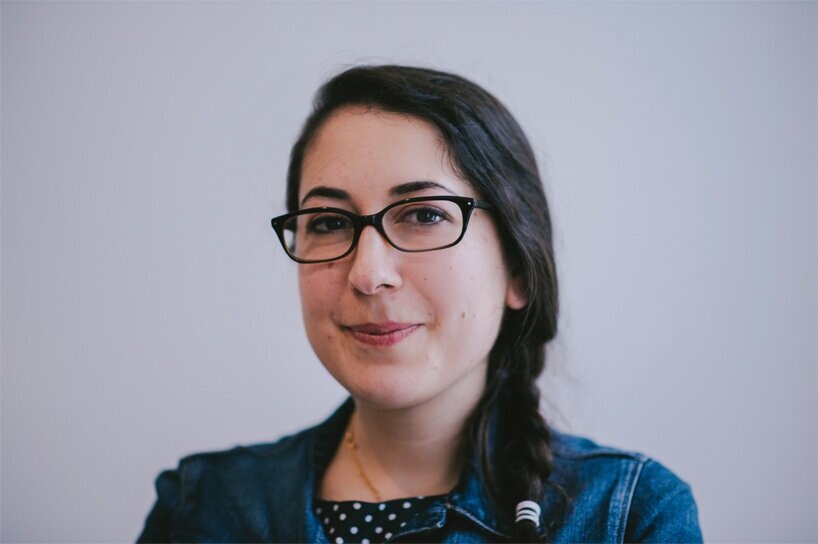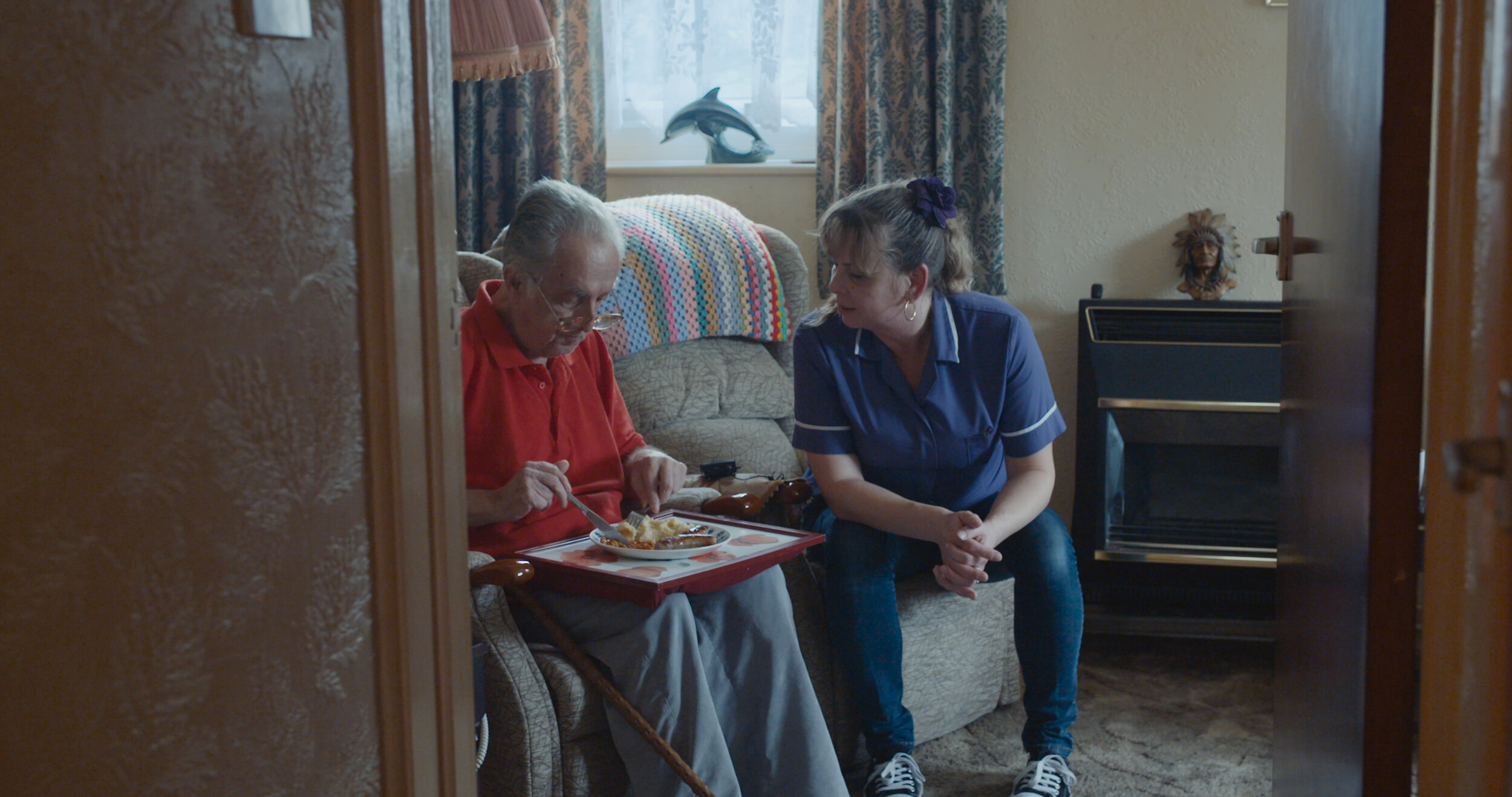Episode 22 - Steven Eastwood & Elhum Shakerifar - “Cactus”
June 4, 2021
In this episode, I speak with UK-based artist-filmmaker Steven Eastwood and producer, Elhum Shakerifar about their collaborative work on the film ISLAND and how that work has shaped their thoughts on the exploration of death and dying in the time of COViD. We also chat about their current film and multiscreen installation the Neurocultures Project which not only centers on the neurodiverse experience but is being co-created with autistic artists. Because Steven, Elhum and the artists with whom they work center the diversity and complexity of the human experience, this week’s song is “Cactus” from the London-based neurodiverse funk band the Fish Police.



Steven’s Bio
Steven Eastwood is a filmmaker and moving image artist. His work is often concerned with ethics, belief, mental health, and disability, and addresses the complexity of encounters between maker and subject. His second feature film ISLAND (2018) had its international premiere at the Rotterdam Film Festival 2018 and was released in the UK in 2018. His first feature Buried Land (2010) premiered at Tribeca Film Festival. Recent solo exhibitions include La Ferme du Buisson, Paris (2019), Blackwood Gallery, Toronto (2018), and Fabrica, Brighton (2017). His latest project develops a participatory co-creation filmmaking model and considers how neurodiverse perspectives can produce progressive cinema images.
Elhum’s Bio
Elhum is a BAFTA-nominated producer, whose widely broadcast films have also screened at festivals including Berlinale, Hot Docs, IDFA, and Rotterdam. Her credits include BAFTA-nominated A Syrian Love Story (2015, Sean McAllister), BIFA Best Documentary winner Almost Heaven (2017, Carol Salter), BFI/Sundance supported ff (2017, Sky Neal & Kate McLarnon), Tokyo and Hong Kong IFF winning Of Love & Law (2017, Hikaru Toda), ISLAND (2018, Steven Eastwood) – now used by NHS for education around death and dying, Doc/Fest 2018 Opening Film A Northern Soul (2018, Sean McAllister) and Ayouni (2020, Yasmin Fedda) – virtually launched at CPH: DOX 2020. A 2016 BFI Vision Award recipient, she is also the MENA / Iran programmer for London Film Festival and Shubbak’s film curator. Elhum was awarded the Women in Film & TV BBC Factual Award in 2017 and named a Producer on the Rise in Screen International’s 2018 Brit50 list.
Elhum founded Hakawati in 2017 to produce, distribute and curate films that hold the art of storytelling at their core. Hakawati is committed to the broader visibility of quieter voices and unique individual – often minority – perspectives in relation to a dominant whole. In making creatively bold films with integrity, representation and reframing narratives are at the heart of what we do. The company’s projects derive from the central tenet that a good story is in the telling and that after all, we are the stories we tell. Hakawati has a dynamic slate of films at various stages supported by funders including BBC Films, Wellcome Trust, and BFI amongst others.
About Hakawati Productions
Hakawati produces, distributes, and curates films that hold the art of storytelling at its core. Hakawati works with storytellers with a distinctive vision and enables new talent to take creative risks. Hakawati is committed to the broader visibility of independent film, giving platforms to quieter voices and unique individual – often minority – perspectives in relation to a dominant whole. In making creatively bold films with integrity, representation and reframing narratives are at the heart of what we do. The company’s projects all derive from the central tenet that a good story is in the telling and that after all, we are the stories we tell. We have three strands of interconnected work: production, impact & distribution, and curation – drawing a link between storytelling and which stories get told.
About ISLAND
ISLAND: Across the water on the island, four individuals experience the year in which their lives will end. Illness progresses, relationships gently shift, and we are witness to rarely seen and intensely private moments. One person shares their acceptance of death, whilst another is surrounded by a community in shock. We observe bedside care and the rhythm of breathing. In a pathology lab, microscopic biopsies in close-up show the interior of bodies, our biology. Filmed over 12 months on the Isle of Wight, Island is a life-affirming reflection on the phenomena of dying, portraying the transition away from personhood and observing the last days and hours of life and the moment of death. Like the ferries cyclically arriving and departing in this enigmatic landscape, the film appears buoyant, afloat. Death is shown to be natural and every day but also unspeakable and strange.
About Neurocultures
What kinds of moving images are possible if they reflect a neurodiverse rather than a neurotypical experience of being in the world? The focus of the Neuroculture Project is on how autism can transform established cinematic norms and instead create progressive images. Using a participatory co-creation model, artist-filmmaker Steven Eastwood and producer Elhum Shakerifar will work with partners and individuals to form a collective and co-create a feature film and a gallery installation.
The Neuroculture project is part of the umbrella research project “Autism through Cinema,” which is supported by Wellcome Trust and run by Steven Eastwood and Janet Harbord at Queen Mary University London. “Autism through Cinema” looks at how the cinema has created descriptions of autism and affected our understanding of neurodiversity.
A series of workshops will lead to participatory filmmaking where the experiences and insights of autistic individuals contribute to the co-creation of a feature-length film, titled NEUROCULTURES, and a multiscreen video artwork titled STIM CINEMA. In both works, autistic young adults invite the viewer to share in their experiences and perception, in doing so shaping the world anew and turning the tables on misrepresentation.
Websites & Social Media
Books/Articles
The Documentary Future: A Call for Accountability
Who Cooked Adam Smith's Dinner?: A Story of Women and Economics
TV/Films
Buffy the Vampire Slayer - The Body
Organizations
Visual Platforms
Land Acknowledgment
Indian Residential School Survivors Society
Indian Residential Schools Resolution Health Support Program
National Student Memorial Register
Residential School Crisis Line
San Carlos Apache Indian Reservation
Elhum & Steven’s Info
Neurocultures - Autism Through Cinema
Festivals
Sheffield International Documentary Festival
People